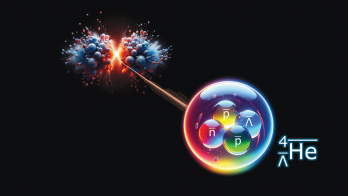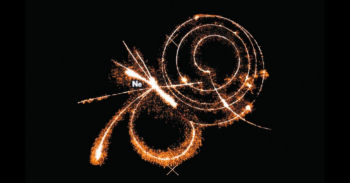The ALPHA collaboration at CERN has made the first direct analysis of how antimatter is affected by gravity. The ALPHA experiment was the first to trap atoms of antihydrogen, held in place with a strong magnetic field for up to 1000 s. Although the main goal is not to study gravity, the team realized that the data that they have collected might be sensitive to gravitational effects. Specifically, they searched for the free fall (or rise) of antihydrogen atoms released from the trap, which allowed them to measure limits directly on the ratio of the gravitational to inertial mass of antimatter, F=Mg/M.
Measuring a total of 434 atoms, they found that in the absence of systematic errors, F must be < 75 at a statistical significance level of 5%; the worst-case systematic errors increase this limit to < 110. A similar search places somewhat tighter bounds on a negative F, that is, on antigravity. Refinements of the technique, coupled with larger numbers of cold-trapped antiatoms, should allow future measurements to place tighter bounds on F and approach the interesting region around 1.
Meanwhile, the antimatter programme at CERN is expanding. AEgIS and GBAR, two experiments currently under construction, will focus on measuring how gravity affects antihydrogen.








